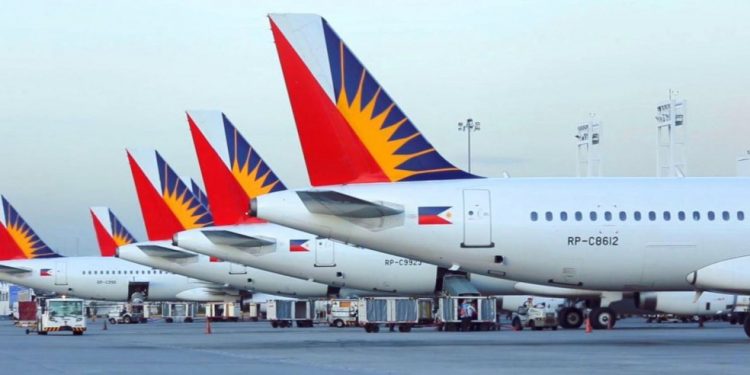PAL announces restructuring due to pandemic impact, says operations continue

FILE PHOTO
The Philippine Airlines (PAL) on Saturday announced its financial restructuring plan aimed to create a “permanent solution” that would enable the company to guarantee its future, as the COVID-19 pandemic weighed down on its operations due to travel bans and restrictions across the world.
PAL President and COO Gilbert Santa Maria said the restructuring plan under Chapter 11 of the United States bankruptcy code’s does not mean that PAL is shutting down, but instead will allow it to reorganize to keep its business alive and pay creditors over a period of time.
“With this goal in mind, we have voluntarily filed for restructuring under a pre-arranged Chapter 11 in the US while simultaneously executing a support filing under the Financial Rehabilitation and Insolvency Act in the Philippines,” Santa Maria said.
The airline has many US-based creditors.
Nilo Rodriguez, PAL’s chief financial and compliance officer, explained that the Chapter 11 filing would also allow the airline to “restructure contracts” mostly controlled by foreign laws.
He said the decision will also pave the way for “positive actions,” as the market tries to recover from the pandemic.
“We are thus able to ensure the execution of all such agreements under a well-established legal process that is universally accepted and can be completed expeditiously,” Rodriguez added.
“The restructuring will enable PAL to emerge with fresh capital, lower debt and a sturdier financial foundation for the future,” a separate statement read.
Filing under Chapter 11 will also help PAL obtain an additional $150 million in debt funding, Rodriguez said.
He added that the airline would formalize agreements with lenders, lessors, and key aircraft and engine suppliers that would bring down debt by at least $2 billion.
The PAL’s customer experience will remain, said Dexter Lee, PAL’s senior vice president for strategy and planning.
The Lucio Tan-led flag carrier, however, said it would implement a 25-percent reduction in its fleet by returning “several wide-body and narrow-body aircraft.”
PAL will also reduce lease payments in the remaining aircraft “through modified lease contracts.”
The airline also outlined some details of their recovery plan:
- Business-as-usual operations will continue and flights will not be affected.
- PAL will also continue accepting future tickets and previous travel vouchers.
- Mabuhay Miles members can still earn and redeem miles or points from merchant partners.
- All passenger and cargo flights will continue to operate subject to travel restrictions.
- Passengers can still book and browse tickets through their website, mobile application, ticket offices, contact centers, and partner travel agents.
“We will maintain our current flight schedules and gradually increase our domestic and international destinations, and flight frequencies as travel demand returns,” Lee noted.
PAL also put emphasis on meeting its financial obligations with partners and stakeholders throughout the process, which is why they would continue refunding tickets and applications “still under process.”
PAL Chairman and CEO Lucio Tan said the airline would “maintain its position as a premier global airline,” which would emerge better to help the country.
“PAL will continue to serve its valued customers and the Philippine economy, now and long into the future,” said Tan.
Philippine Airlines Holdings Inc in mid-June said it incurred a net comprehensive loss of P73 billion in 2020, reflecting the “extraordinary impact” of the COVID-19 pandemic on PAL’s operations.
The airline has been reported to be seeking court protection as early as November last year.
In February, PAL announced retrenching some 2,500 or 30 percent of its workers.
Airlines have been hit hard by travel restrictions imposed to curb the spread of COVID-19.
Cebu Pacific also posted a net loss of P22.2 billion in 2020 as the pandemic cratered travel demand.






